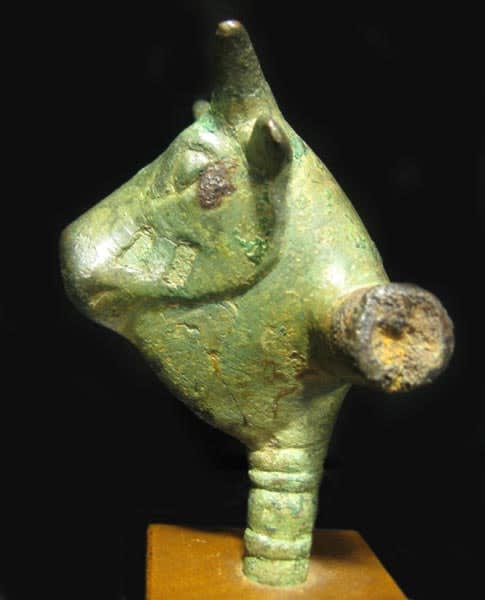Iron Age Bronze Sculpture of a Bull Head, 700 BCE - 500 CE
Bronze
2 x 3
FZ.350
Further images
Early Greek religion centered on the veneration of natural objects such as rocks, trees and animals. There is no unequivocal evidence of a bull-cult or bull-god in Greece or Crete....
Early Greek religion centered on the veneration of natural objects such as rocks, trees and animals. There is no unequivocal evidence of a bull-cult or bull-god in Greece or Crete. However, the bull image as depicted in art from these regions strongly suggests a profound reverence for this powerful animal. The bull's strength, agility and courage made it a perfect symbol for eternity and fertility, especially the horns with their phallic connotation. This remarkable bull's head beautifully captures these qualities that have been so long admired in a beast that is both wild and domestic, but never tamed. Its head and neck form a solid mass, delicately modeled in the fine curves of the eyes, sloping nose, fully extended ears and broad expanse of the horns. The ribbed vertical rod from the neck indicates the head was attached to something, perhaps a scepter, as in examples from the Near East. The dual horizontal extensions are suggestive of a utilitarian rather than a decorative use. Though this bull's head can fit in the palm of the hand, it holds within itself the cult mystery and sheer physical power of the Iron Age.





